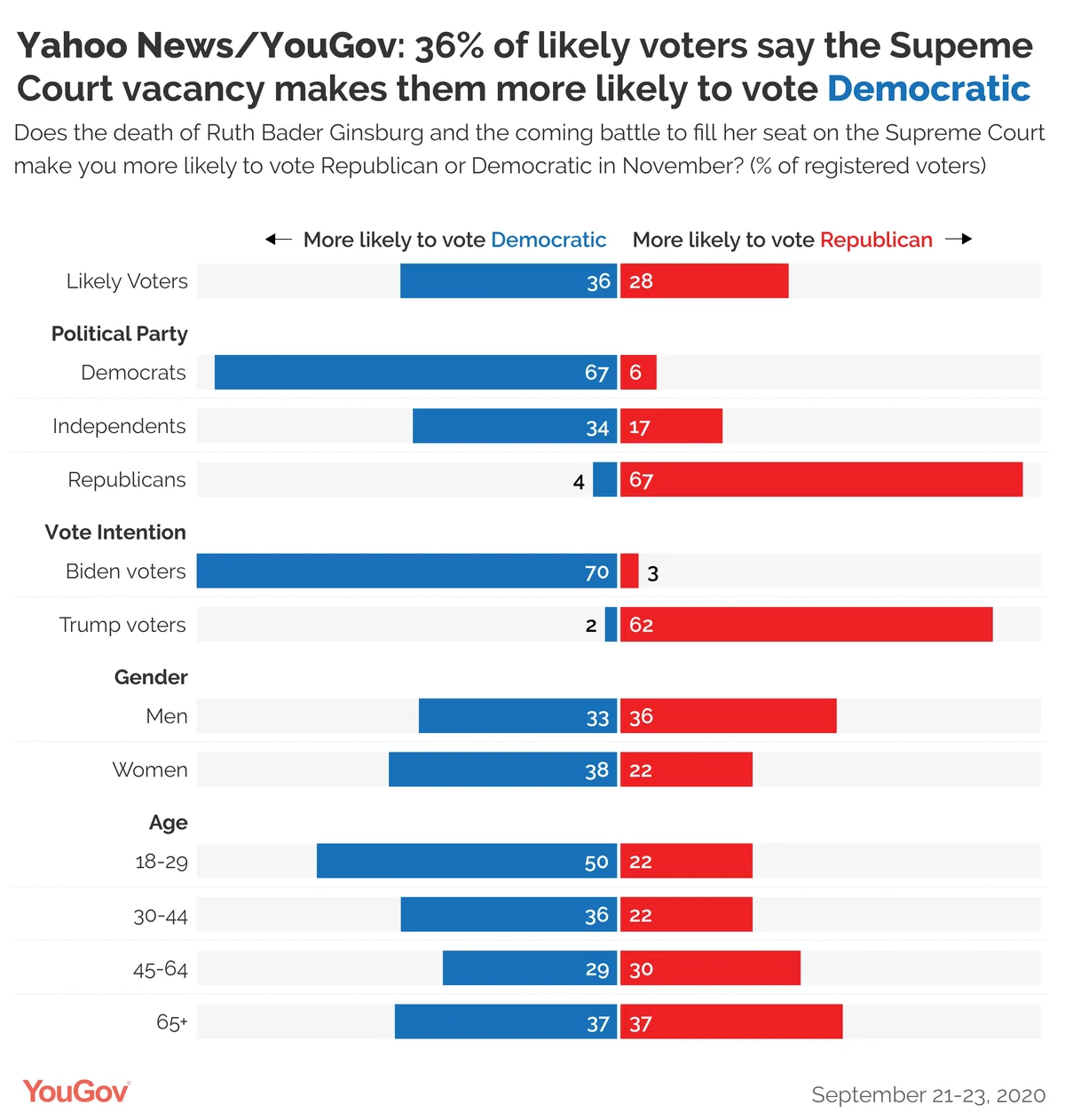President Donald Trump is anticipated to announce his third appointment to the Supreme Court of the United States on Saturday — leaning into a political battle that could significantly impact every branch of government with 39 days until the general elections.
A Yahoo News/YouGov Poll shows that Americans believe that whichever candidate wins the 2020 election should nominate the Supreme Court justice who will fill Justice Ruth Bader Ginsburg’s seat (53%) rather than simply giving the nomination to the incumbent president (40%). About half (51%) of Americans want the Senate — which must confirm a president’s Supreme Court nominee — to wait until after the November election is decided and let the winner choose the nominee, rather than fill the vacancy before the election (38%).
Likely voters in the upcoming election are more likely to say the death of the liberal justice and the coming battle to fill her seat makes them more likely to vote Democratic (36%) rather than Republican (29%). However, the overwhelming majority in each category are already supporting Biden or Trump, respectively, meaning the increased likelihood is not actually changing overall support.
Half of 18-to 29-year-olds (50%) and about one-third (36%) of 30-to 44-year-olds say the vacancy makes them more likely to vote Democratic. About one in five (22%) say it makes them more likely to vote Republican.

Very few Biden voters (3%) say the Supreme Court battle makes them more likely to vote Republican, and just 2 percent of Trump voters say they're more likely to vote Democratic. Americans who are undecided or supporting a third-party candidate in the upcoming election are split between being more likely to vote Democratic (11%) and 14 percent more likely Republican.
See the toplines and crosstabs from this week’s Yahoo News/YouGov Poll
Methodology: The Yahoo! News survey was conducted by YouGov using a nationally representative sample of 1,284 U.S. registered voters interviewed online between September 21-23, 2020. This sample was weighted according to gender, age, race, and education based on the American Community Survey, conducted by the U.S. Bureau of the Census, as well as 2016 Presidential vote, registration status, geographic region, and news interest. The margin of error for the sample was 4.1%
Image: Getty








